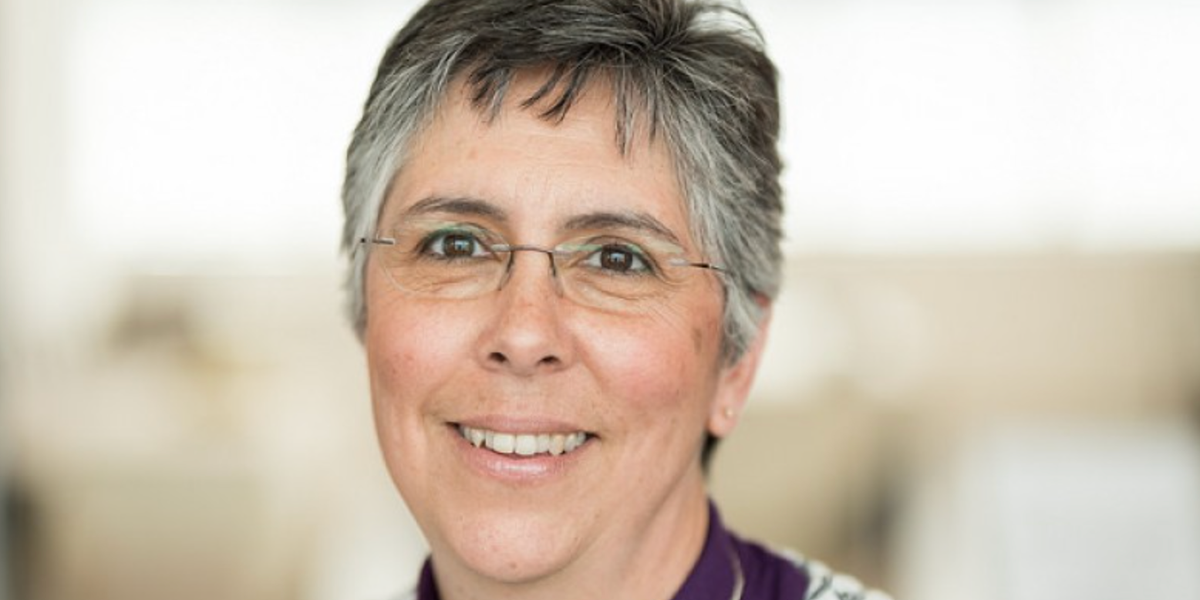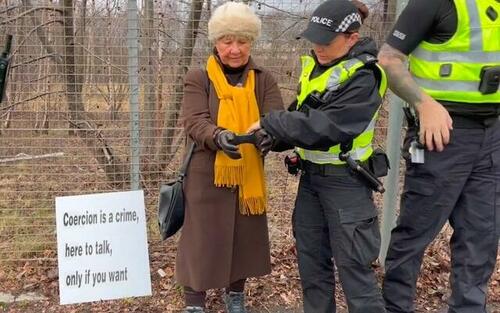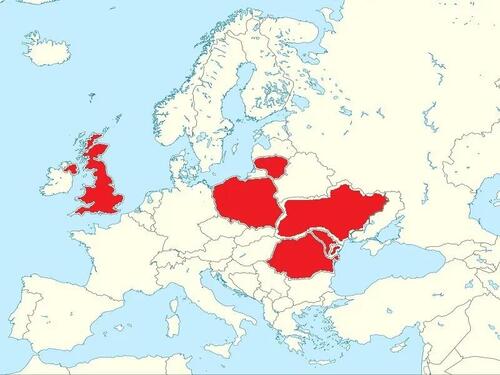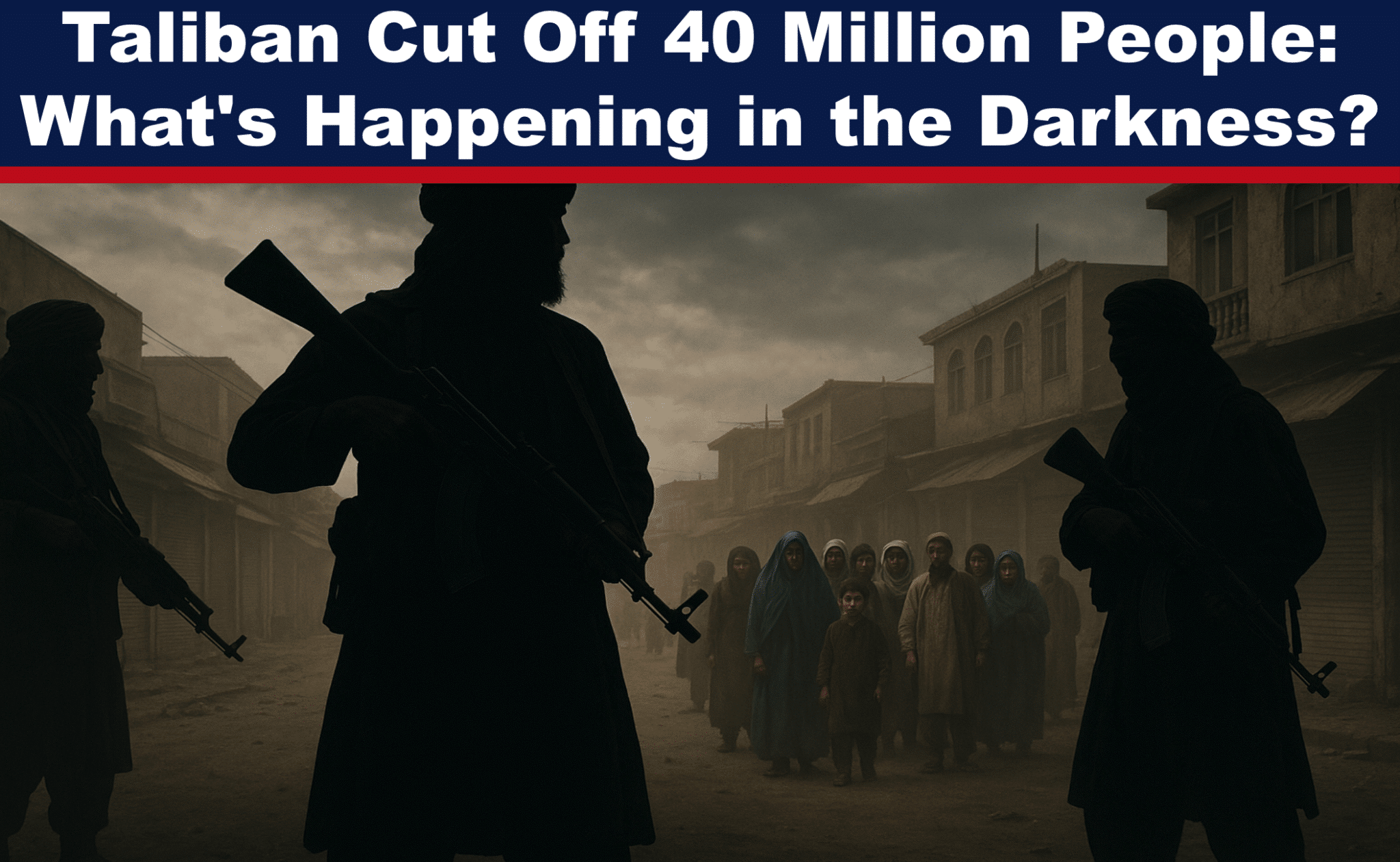Gaza doctors are starving while fighting to save lives, evacuated medic tells BBC
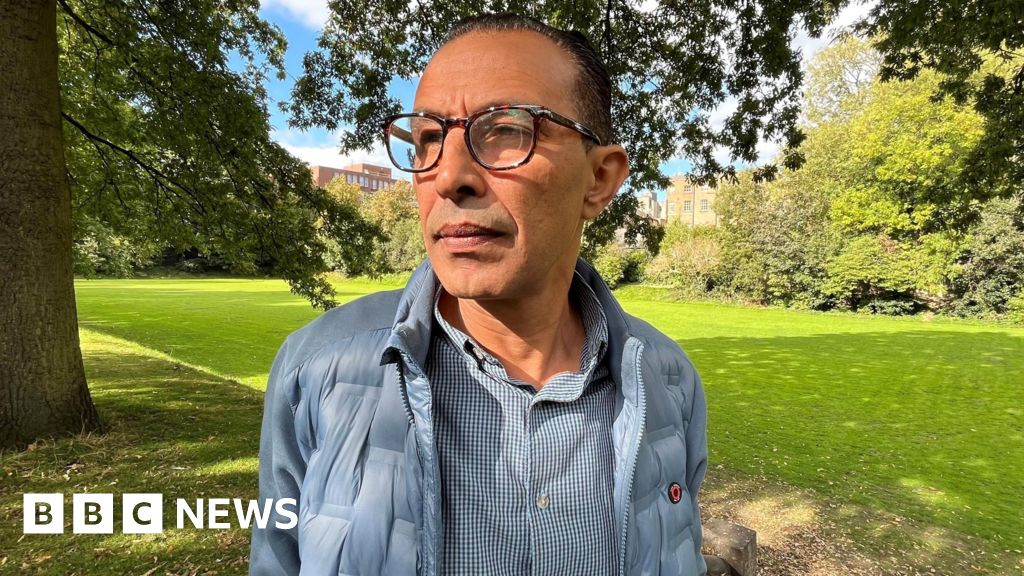
Caroline HawleyDiplomatic correspondent

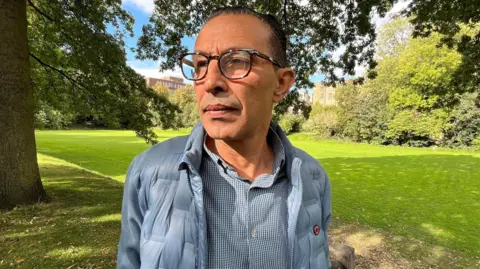 BBC
BBC
For two decades, his job and purpose in life was to heal people. But Dr Mohammed Abu Mughaisib also wanted to stay alive.
So, when he could no longer even look after himself, and the hunger was too much to bear, he took a rare chance to leave Gaza.
“I would never have imagined starving,” the Médecins Sans Frontières (MSF) medic said.
“But my head hurt and I had pain in my stomach from starvation.”
After working non-stop at hospitals throughout Gaza over the past two years, Dr Abu Mughaisib was evacuated to Ireland in mid-September, along with a group of students taking up scholarships.
Safe and fed, he is now able to reflect on his time working in increasingly dire conditions as Israel’s offensive destroyed medical and other critical infrastructure – and how he feels about leaving colleagues behind.
“The decision was very difficult,” he told me, sitting in a peaceful park in Dublin – with a soundtrack of birdsong, rather than bullets, drones and explosions.
The contrast between the two worlds was almost overwhelming for him.
“I’m physically here but my heart and soul are in Gaza,” he said. “It’s very strange seeing people living a normal life, and it will take time to get used to it.”
“I’m happy that I’m a survivor. Because I could have been killed or injured anytime. But I’m sad that I left behind my colleagues and my people.”
Dr Abu Mughaisib was in charge of operations for the international medical charity in the Gaza Strip, including all its hospitals, clinics and mental health services. It is one of the biggest providers of medical services in Gaza.
He struggled to put into words the “indescribable” consequences for his colleagues of the past two years of war, with Israel’s offensive leaving Gaza’s hospitals under severe strain, with some forced to close and others operating at drastically reduced levels.
He told me about medics forced to sip glucose solution just to give themselves a little energy to carry on working.
At one point, among doctors and nurses, the only topic of conversation in the hospital was food, and the desperate hunt for it. “Starving doctors were treating malnutrition,” he said.
And the injured just kept coming.
“When you enter a hospital, you smell blood,” he told me.
“Hospitals are meant to be holy places, sterile places but in Gaza it’s like going to a public market. Patients are literally lying on the ground because there are no beds for them.
“There are not enough doctors to look after them. In the intensive care unit, they wait for someone to die, to admit another critical patient.”
He adds: “I hope that one day you can have access to see what’s happening in these hospitals in Gaza. It’s horrible.”
Foreign journalists are banned by Israel from entering Gaza independently, so news organisations, including the BBC, rely on trusted local freelancers to report from the ground.

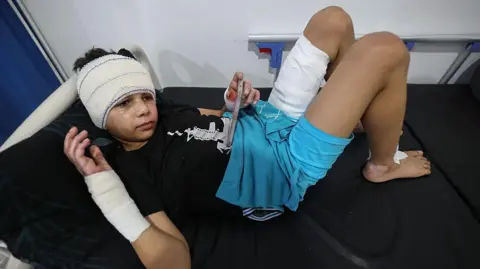 Getty Images
Getty Images
The 52-year-old doctor has lost count of the number of times he was displaced since the start of the war Israel launched in retaliation for the Hamas-led attacks of 7 October 2023.
Those attacks were “totally unacceptable” and shocked him, he said.
He said his large home in Gaza City – which used to have a barbecue and picnic table on the lawn – was taken over as an Israeli military base and then looted by local people.
Dr Abu Mughaisib managed to get his family evacuated to Egypt in February 2024, while he stayed behind.
“I lived in a tent. I lived in the hospital. I lived in the MSF office. I put my mattress down in the electricity room of a restaurant.”
But wherever he was, he kept working.
Fear accompanied him everywhere. “Every time I walked in the street, I was very terrified and I looked around me, staring at people, because I didn’t know who was Hamas”, he said.
“And I thought, OK this guy, maybe he’s wanted, maybe they [Israel] will target him. And they will kill everyone around.”
Each day brought moral dilemmas over how to treat the injured.
“Which patient do you admit? You decide you can only take children, but they’re mostly children, so which one do you prefer to take care of?”
“The situation is beyond description,” he added.
More than 18,000 of the 66,000 people the Hamas-run health ministry has recorded killed during the war are children. The UN considers these figures reliable.
And as Israel continues its offensive in Gaza City, the UN says that attacks on and around hospitals have left sick and injured civilians with nowhere to go for life-saving treatment.
According to the UN Human Rights Office, there have been at least 17 Israeli attacks in or near health facilities in Gaza Strip in the second part of September alone.
“There were no signs it’s only targeting Hamas,” said Dr Abu Mughaisib. “It’s the civilians, the population, me, my friends, my colleagues, my neighbours, they are not Hamas.
“We are the ones who were killed and injured and running from one place to another and starving.”
Israel says it takes steps to reduce civilian casualties and blames Hamas for using civilians as human shields.
Dr Abu Mughaisib said he knew that Israel’s retaliation for the 7 October attacks would be massive. But he never imagined the scale of it, describing it as an “attack on every layer of life in Gaza, from infrastructure, electricity, the water supply, the sewage system, the hospitals, schools and universities.”
He told me people in Gaza are so desperate that they will their elderly relatives to die to spare them further suffering.
“I have colleagues still under the rubble”, he said.
At least 13 MSF staff have been killed over the past two years. The latest, a nurse who died of shrapnel injuries from an Israeli air strike near his tent in September.

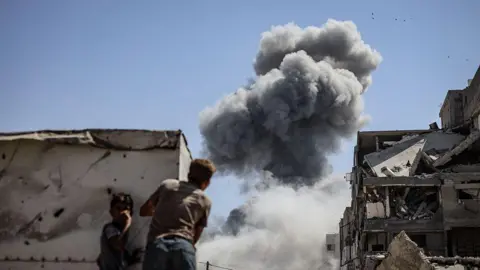 Anadolu via Getty Images
Anadolu via Getty Images
Safe now from the war in Gaza, Dr Abu Mughaisib enjoyed his first proper shower in almost two years.
But after dreaming for weeks about eating, now that there’s food all around him, he has no appetite.
“Of course, I’m happy that I left. But I’m not enjoying this happiness. When I know my colleagues are suffering, I can’t eat a proper meal.”
He left Gaza with only his mobile phone and the clothes he was wearing. Nothing else was allowed.
He was told that the Israelis had strictly prohibited evacuees from taking any sand or earth from Gaza.
And he is convinced that this was for a reason: “So there’s no proof that you are from Gaza. You have no links to Gaza. You have no memories of Gaza.”
“I wanted to take all of Gaza with me,” he said. “Not just a bit.”
He said the destruction in Gaza is so extensive that towns he passed through as he left through the border crossing with Egypt were completely unrecognisable.
I asked him if he thought Gaza would ever heal.
“It will be very difficult,” he replied.
“The wounds are not just physical. They are social, psychological, emotional and spiritual.
“Everything is lost.”
Healing will take a long time, he said.
“And I think the people will need the support of the world to heal them.”
Additional reporting by Imogen Anderson
Recent Top Stories
Sorry, we couldn't find any posts. Please try a different search.



